Educators:
Marc Höppner (Associated partner - CAU)
Date:
September 19, 2019 - 08:30 - 16:30
Location:
Kiel, Am Botanischen Garten 1-9, Room E49
Contents:
The constant drop in sequencing prices and the development of easy-to-use assembly programs makes it possible, even for small groups, to embark on a de novo genome project to obtain the full sequence of their species of interest. However, automatically annotating all genetic features in a eukaryotic genome, especially in non-model species with few or no sequenced closely related species, remains a challenge and standard pipelines still do not exist.
Learning goals:
In this one day course participants will learn about these challenges and the current strategies that can be used to try to obtain the most complete set of genes from a de novo assembled eukaryotic genome. We will also discuss how additional data, such as RNA-seq, assembled transcriptomes or proteomic data, can be used to improve the annotation, which can inform decisions on how best to spend the budget during a genome project. The practical part of the course will explain how to automatically and manually annotate a genomic region and how that information can be immediately translated into biologically relevant data for the species of interest.
Prerequisites:
None
Keywords:
eukaryotic genome, annotation, RNAseq proteomic data, assembly
Contact:
Marc Höppner,
This course is designed for 15 participants. If we receive (a lot) more applications, we will choose participants based on the relevance of their application and/or a first-come-first-serve basis.
Registration:
https://forms.gle/ZkQ2RLwRJ9CXVmYH8
Registration deadline is 15th of August.

